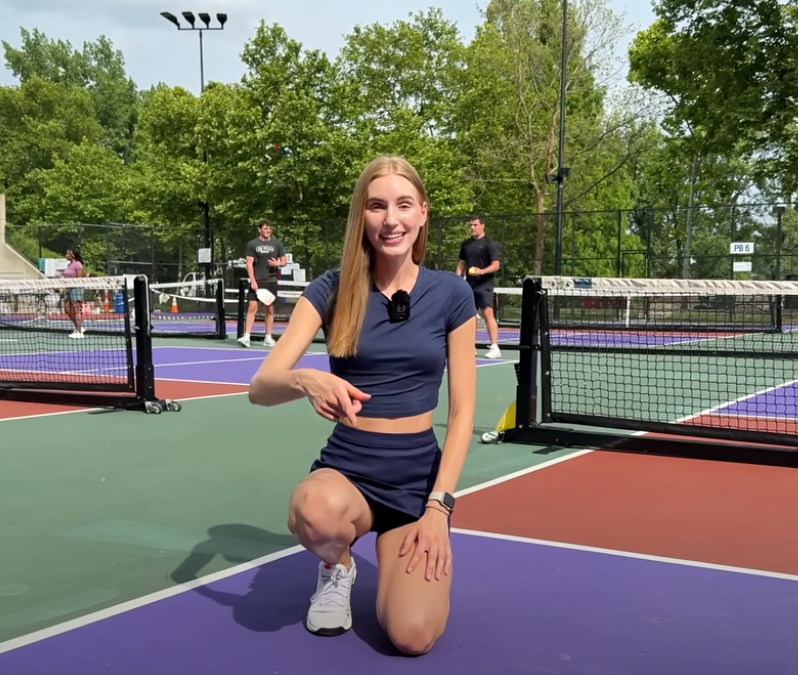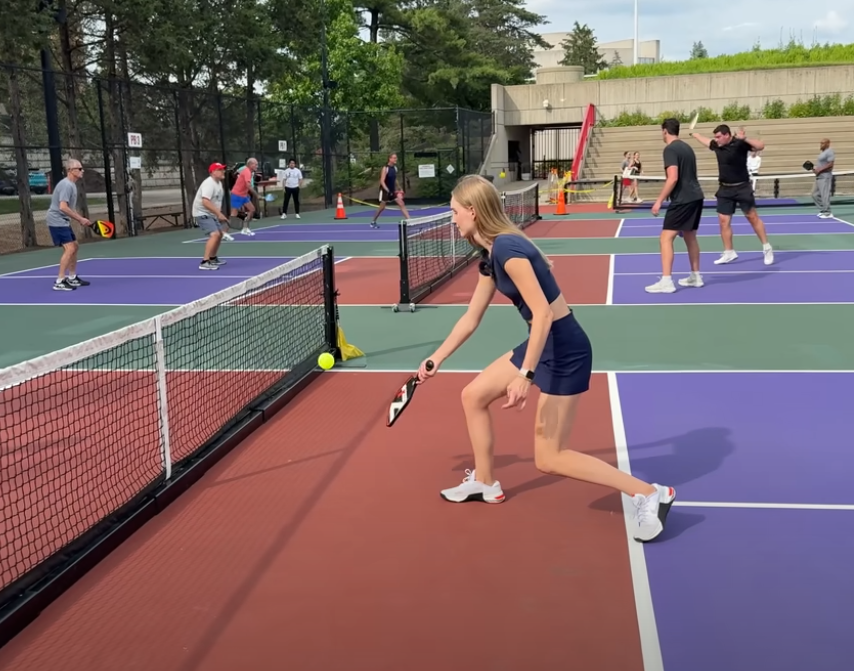
Learning English doesn’t have to be limited to classrooms, textbooks, or language apps. In fact, one of the best ways to improve your English skills is by combining learning with something you enjoy. That’s where pickleball comes in. This fast-growing sport is not only fun and social, but it also offers a great opportunity to practice English naturally. Whether you’re playing in a league, taking a class, or just having fun with friends, pickleball can be your new favorite way to learn English.
What is Pickleball?
Before we dive into the language-learning benefits, let’s briefly explain what pickleball is. Pickleball is a paddle sport that combines elements of tennis, badminton, and ping-pong. It is played on a court with a net and uses a perforated plastic ball and paddles. Players can play singles (one-on-one) or doubles (two-on-two). The game is easy to learn, which makes it perfect for beginners of all ages.
Originally invented in the United States in the 1960s, pickleball has recently exploded in popularity worldwide. Its simplicity and social nature make it an ideal environment for both sports and language learners.
How Playing Pickleball Can Help You Learn English

1. Real-Life Communication
One of the most powerful ways to learn a language is through real interaction. When you play pickleball, you’re constantly communicating. You call out scores, say “nice shot,” ask questions, give directions, and make small talk. These are all opportunities to practice speaking and listening in English.
Instead of memorizing vocabulary lists, you’ll learn the phrases that are actually used in everyday conversations. This type of contextual learning helps you remember words and expressions more effectively because they are tied to real experiences.
2. Building Vocabulary
Pickleball has its own set of terminology. Here are some common words and phrases you’ll hear on the court:
- Serve – The shot that starts a point.
- Dink – A soft shot that lands in the opponent’s non-volley zone.
- Volley – Hitting the ball before it bounces.
- Kitchen – The non-volley zone close to the net.
- Fault – A violation of the rules.
- Let – A serve that hits the net but still lands in the correct area.
Learning these terms and using them in real games expands your vocabulary in a fun, memorable way. You can also learn useful general English words like “score,” “game,” “match,” “winner,” “loser,” and “tie.”
3. Listening Skills
In a typical pickleball game, you need to listen carefully to what your partner says, hear the score, and follow instructions from coaches or referees. This helps develop your listening comprehension in an active environment, which is different from listening to a podcast or audio lesson.
You’re exposed to various English accents, speech speeds, and informal expressions. This kind of natural listening helps train your ear and improves your ability to understand native speakers.
4. Speaking Practice Without Pressure
A sports setting provides a low-pressure environment to speak. Unlike in a classroom, where some learners feel shy or nervous, a pickleball game focuses on having fun. People are less worried about grammar mistakes and more focused on the game. This encourages learners to speak more freely and confidently.
You’ll also practice pronunciation and intonation through repetition. For example, saying “Nice shot!” or “Good game!” over and over helps you speak more naturally.

5. Cultural Immersion
Language and culture go hand-in-hand. Playing pickleball in English-speaking environments allows you to experience cultural norms and etiquette firsthand. You learn how people greet each other, how they express sportsmanship, how they joke, and how they give feedback.
For example, you might learn that it’s common to say “Good game” and shake hands after a match, or to use humor to lighten the mood during play. These are valuable lessons you won’t get from a textbook.
6. Reading and Writing Opportunities
Learning English through pickleball isn’t limited to the court. You can also read pickleball blogs, join online forums, watch YouTube tutorials with subtitles, or follow pickleball pages on social media. This gives you regular reading practice on a topic you care about.
If you’re more advanced, you can write too—keep a journal about your progress, post comments online, or even write match reports. This kind of engagement makes reading and writing more meaningful and enjoyable.

How to Start Learning English with Pickleball
Here are a few steps you can take to start combining your English learning with pickleball:
- Join a Pickleball Club or Meetup Group
Find a local group where people speak English. Even if you’re a beginner in both English and pickleball, most communities are welcoming and happy to help. - Learn Basic Pickleball Vocabulary
Make flashcards or a list of key terms. Focus on words you’ll use during play. You can also watch videos in English to see how players use these words. - Set Language Goals
Set small goals, like “I will introduce myself in English at the next game” or “I will learn 5 new phrases each week.” - Record Your Progress
After each game, write a few sentences in English about what happened. What did you learn? What words did you use? What was difficult? - Practice Social English
Chat with your partner, ask questions, and listen carefully. Use phrases like:- “What’s the score?”
- “Nice try!”
- “Let’s switch sides.”
- “Do you want to play doubles?”
- Be Patient and Have Fun
Don’t worry about making mistakes. Everyone makes them. Focus on communication, not perfection. The more you play, the more confident you’ll become.

Example Conversation on the Court
Here’s a sample dialogue between two players to show how casual English is used during pickleball:
Anna: Hey, do you want to play a quick game?
Mike: Sure! Singles or doubles?
Anna: Let’s do doubles. I think Lisa and Tom are free.
Mike: Sounds good. Do you want to serve first?
Anna: Yeah, I’ll start. What’s the score?
Mike: Zero-zero-two!
Anna: Okay, here we go!
This short conversation includes greetings, questions, vocabulary, and basic grammar—all used naturally. Practicing these kinds of exchanges will boost your confidence and fluency.
Conclusion
Pickleball isn’t just a fun way to stay active—it’s also a powerful tool for learning English. Whether you’re a beginner or more advanced, playing the game gives you a chance to practice real conversation, build vocabulary, improve listening skills, and learn about culture—all in a friendly, engaging environment.
So grab a paddle, head to the court, and start speaking English with every serve, volley, and laugh. You’ll be amazed at how much you can learn while having fun.



